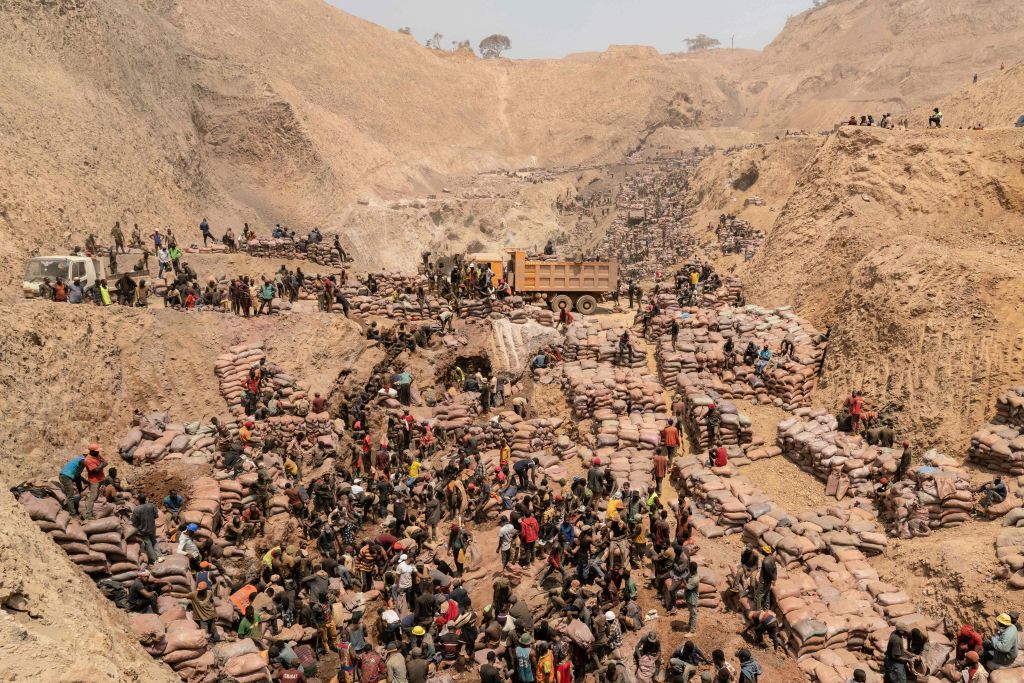ADF STAFF
The Democratic Republic of the Congo (DRC) is home to some of the world’s most sought-after minerals.
Four-fifths of the world’s cobalt, a critical component in batteries used in electric vehicles and electronic devices, is in the DRC, along with more than 70% of global production.
The DRC also holds the world’s seventh-largest reserves of copper and is the third-largest producer.
The country and its people should be on verge of an economic boom. The constitution states that: “All Congolese people have the right to enjoy the national wealth.”
But there is a dark side for the Congolese who work in and live near the mines.
China owns most of the industrial mines in the DRC and is responsible for child labor, horrific working and living conditions as well as systematic evictions of residents who live on its vast concessions.
A new report from the DRC-based Initiative for Good Governance and Human Rights, known by its French acronym, IBGDH, along with international rights group Amnesty International, shows how Chinese copper and cobalt mining is “wrecking lives” in the DRC.
“People are being forcibly evicted, or threatened or intimidated into leaving their homes, or misled into consenting to derisory settlements,” IBGDH President Donat Kambola said in a statement on September 12. “Often there was no grievance mechanism, accountability, or access to justice.”
The IBGDH is based in Kolwezi, one of the centers of mining expansion in the southern province of Lualaba, where cobalt and copper mining has skyrocketed in recent years.
Satellite imagery of Kolwezi has revealed this expansion over the last five years, as mines have crept into neighborhoods and entire city streets have disappeared.
The IBGDH interviewed more than 130 people at six different mining projects in Kolwezi.
“Evictions are often carried out by mining operators with little concern for the rights of affected communities and little heed for national laws meant to curtail forced evictions in the mining sector,” the report stated.
In his new book, “Cobalt Red,” Siddharth Kara explores how the mining industry has ravaged the landscape of the DRC.
The air and water around mines have been contaminated with toxic dust and effluents from the mining processing. Millions of trees have been cut down.
Local miners operate in extremely dangerous conditions.
“Cobalt is toxic to touch and breathe — and there are hundreds of thousands of poor Congolese people touching and breathing it day in and day out,” Kara told National Public Radio. “Young mothers with babies strapped to their backs, all breathing in this toxic cobalt dust.”
Kara, a fellow at Harvard University’s T.H. Chan School of Public Health, described inhumane conditions.
“Imagine an entire population of people who cannot survive without scrounging in hazardous conditions for a dollar or two a day,” he said. “People are working in subhuman, grinding, degrading conditions. They use pickaxes, shovels, stretches of rebar to hack and scrounge at the earth in trenches and pits and tunnels to gather cobalt and feed it up the formal supply chain.”
China’s stated intention is to corner these mineral markets.
In 2009, then-DRC President Joseph Kabila signed a deal with the Chinese government for access to mining concessions. In short order, Chinese companies seized ownership of 15 of the country’s 19 primary industrial copper-cobalt mining concessions.
“They dominate mining excavation on the ground,” Kara said. “And not just that, they dominate the chain all the way through to the battery level. They have about 70% to 80% of the refined cobalt market and probably half of the battery market.”
DRC President Felix Tshisekedi has vowed to overhaul his predecessor’s deal, which he said unfairly benefits China more than the DRC. China vehemently disagrees.
Paul Nantulya, a research associate at the Africa Center for Strategic Studies, said the dispute has the potential to sour DRC-China relations.
“It is perceived as patently unfair because obviously the Congolese side could have gotten a lot more,” he told VOA. “How are the Chinese partners likely to respond to this? I think it’s fair to say that they’re going to try and keep their piece as big as possible.”

